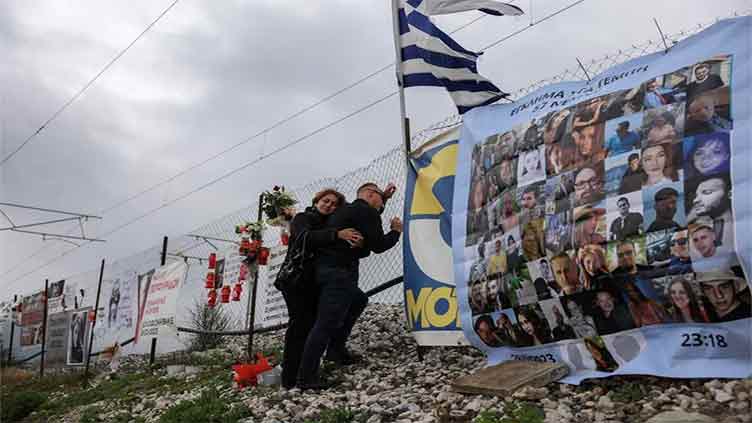A year after Greece's worst train disaster, railway safety fears persist

World
A year after Greece's worst train disaster, railway safety fears persist
ATHENS (Reuters) - After 57 people were killed in Greece's worst train disaster a year ago, the government promised to fix a system crumbling from decades of neglect.
"Trains will resume operations with safety at the maximum possible level," Prime Minister Kyriakos Mitsotakis said weeks after the crash.
One year on, however, crash experts and railway officials say little has been done to significantly improve train safety, despite mounting evidence that system deficiencies helped cause the accident.
Remote train control and communication systems, mandatory under European Union law, are still not functioning, officials told Reuters. Railway staff numbers at the main rail operator have fallen since the crash, and those remaining await fresh training. A lack of reform to Greece's fragmented railway management has slowed progress, they said.
The situation worries experts who say that Greece's rail network is prone to future accidents if safety is not improved.
Meanwhile, grieving families and survivors demand answers.
"We haven't learned our lesson and haven't acted," said Costas Lakafossis, an accident investigator commissioned by victims' relatives. "Unfortunately, the railway is not in a better state."
The Greek transport ministry told Reuters it is implementing a comprehensive plan to revamp the railway and that there has been significant progress in upgrading railway safety, despite extensive damage caused by flooding in September.
Panagiotis Terezakis, head of Hellenic Railways Organisation (OSE) which operates the rail network, says it is safe. The OSE had installed 300 infrared cameras in tunnels since the crash and had made progress on the installation of safety systems.
He acknowledged, though, that more needs to be done.
OSE has 640 employees, according to unions, fewer than 2023 and half the number in 2013. It plans to hire 90 people next month and up to 500 soon, Terezakis said, adding that the OSE employs 0.4 workers per km of rail, nearly half the EU average.
"This is a railway system which for the past 15 years has been in decline. You cannot resurrect it within a year," he told Reuters, adding that red tape remained a big hurdle.
"I have a degree in engineering. I am not God."
SYSTEMS LACKING
On Feb. 28, 2023, a passenger train packed with students collided head-on with a freight train just before midnight on a line linking Athens with Greece's second city Thessaloniki.
The crash, the country's deadliest in history, triggered protests across Greece, where it was seen as the result of a wider neglect of public services following a decade-long financial crisis.
The government promised reform. It commissioned an investigation, seen by Reuters, which found that the crash might have been averted if two key systems had been in place: ETCS, which can remotely control a train's speed and its brakes; and GSM-R, a wireless network allowing communication between station masters, train drivers and traffic controllers.


